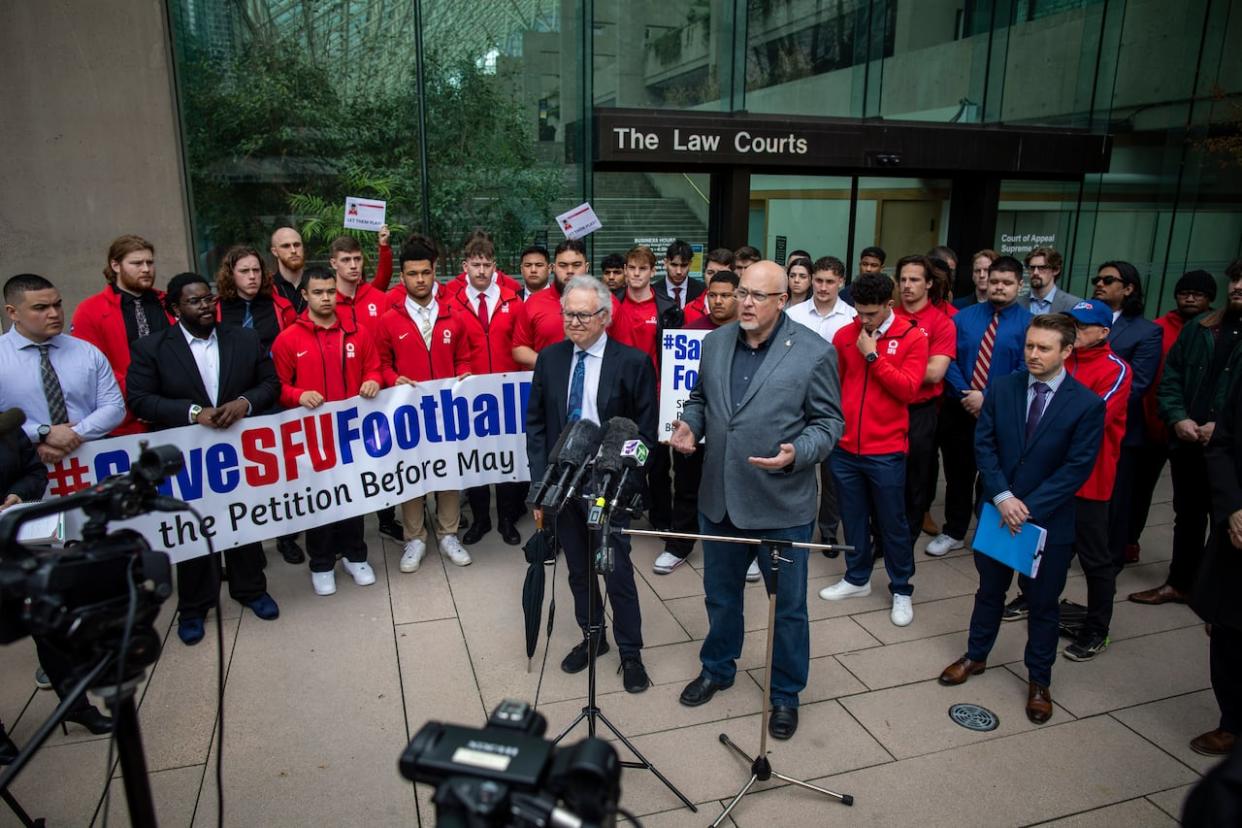Budget deficit a major factor in SFU football cancellation, despite earlier denials

A report from the special adviser hired to look into the viability of Simon Fraser University's football program appears to be the final nail in the coffin of the varsity team that was suddenly eliminated five months ago, provoking a huge outcry.
Most surprising is the revelation that the department overseeing varsity sports at SFU has major money problems, with an estimated operational deficit of $1.7 million this year if football wasn't cancelled.
"There are significant concerns about the operations of the department of athletics and recreation including rising budget deficits and a lack of capacity to support its current programming," says the report, which was released Monday.
Players and alumni were blindsided in early April by the news that SFU president Joy Johnson had folded the team due to "ongoing uncertainty."
On the same day, SFU's senior director of athletics and recreation, Theresa Hanson, told players the decision was not financially motivated. Hanson left SFU four months later.
The report says there is no clear, unencumbered path for the reinstatement of SFU football in the U.S., where it played for most of its 57 years in existence, or in Canada.
It said the best opportunity for SFU to revive football would be through the Canada West Conference of U Sports, however the school would have to seek an exemption or agree to move other varsity sports teams to U Sports, incurring "operational complexities and costs."
The report was prepared by Bob Copeland, senior vice-president of McLaren Global Sport Solutions, who was brought on as a special advisor by SFU in June to explore future football options.

The Simon Fraser University football dates back to1965, the year the school opened its main campus on Burnaby Mountain. (@SFUFootball/Twitter)
Player Gideone Kremler said he was disappointed the report didn't clearly outline steps SFU could take to bring back football. He also wonders why SFU leaders weren't transparent about financial problems.
"We were told quite simply money wasn't an issue," said Kremler, who was supposed to be vying for the starting quarterback position this season. "It's hard to say that they necessarily lied to us, but I feel lied to."
The demise of SFU leaves UBC as the only university in the province with a football program.
According to Football Canada president Jim Mullin, SFU has assets — including a $3 million football endowment fund raised by alumni and $500,000 of football equipment — that needs to be put aside and possibly dispersed to another B.C. university as incentive to start a program.
Mullin said he was shocked to learn from the report that SFU athletics has no strategic plan.
"What I took away from this report is that the athletics department at Simon Fraser is a mess right now that led to this decision with football back in April," he said.
The vice-provost who oversees athletics said university leaders were still digesting the 136-page report. But Rummana Khan Hemani vowed that SFU was committed to supporting the remaining 16 varsity teams.
"We've been doing the work to understand where there might be opportunities for leveraging existing resources and how are we going to address the fact that costs have been growing, not just in athletics, but across frankly every sector," she said.
The axing of the team provoked outrage from the greater football community, while a dozen high-profile player graduates from the university — including Lui Passaglia — demanded their names be removed from the SFU Sports Hall of Fame.
A pledge drive spearheaded by B.C. Lions owner Amar Doman raised close to $800,000 to help save the program.


